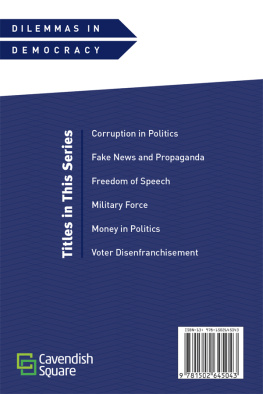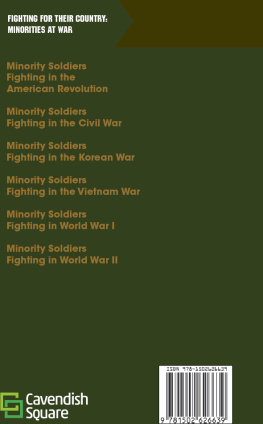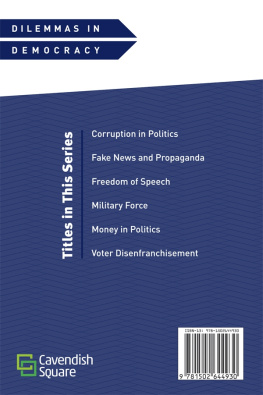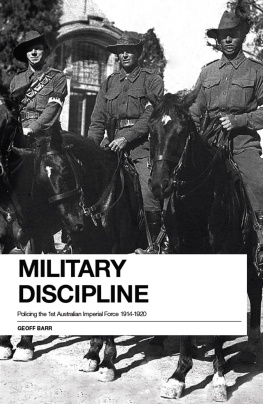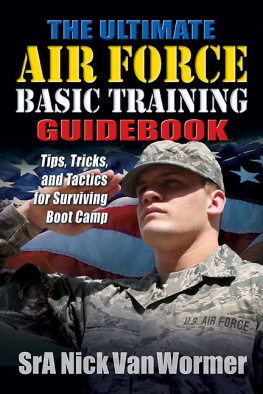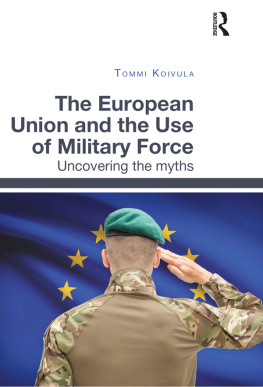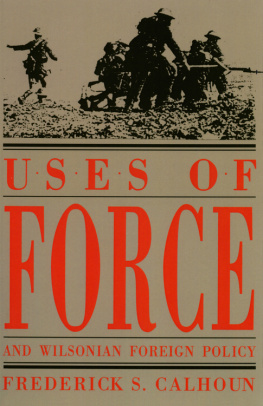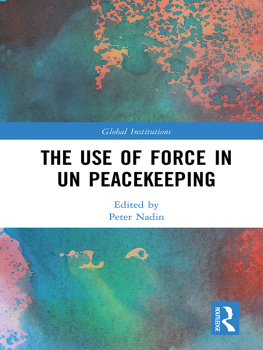Derek Miller - Military Force
Here you can read online Derek Miller - Military Force full text of the book (entire story) in english for free. Download pdf and epub, get meaning, cover and reviews about this ebook. year: 2019, publisher: Cavendish Square Publishing, LLC, genre: Politics. Description of the work, (preface) as well as reviews are available. Best literature library LitArk.com created for fans of good reading and offers a wide selection of genres:
Romance novel
Science fiction
Adventure
Detective
Science
History
Home and family
Prose
Art
Politics
Computer
Non-fiction
Religion
Business
Children
Humor
Choose a favorite category and find really read worthwhile books. Enjoy immersion in the world of imagination, feel the emotions of the characters or learn something new for yourself, make an fascinating discovery.
- Book:Military Force
- Author:
- Publisher:Cavendish Square Publishing, LLC
- Genre:
- Year:2019
- Rating:5 / 5
- Favourites:Add to favourites
- Your mark:
- 100
- 1
- 2
- 3
- 4
- 5
Military Force: summary, description and annotation
We offer to read an annotation, description, summary or preface (depends on what the author of the book "Military Force" wrote himself). If you haven't found the necessary information about the book — write in the comments, we will try to find it.
The question of when to use military force is one of the most difficult that democracies face. What exactly constitutes self-defense and whether to intervene in a humanitarian crisis are questions that can quickly come to define a presidents tenure in office. Readers will examine recent examples of military force around the world, whether they were justified, and their controversial legacies.
Military Force — read online for free the complete book (whole text) full work
Below is the text of the book, divided by pages. System saving the place of the last page read, allows you to conveniently read the book "Military Force" online for free, without having to search again every time where you left off. Put a bookmark, and you can go to the page where you finished reading at any time.
Font size:
Interval:
Bookmark:

Published in 2020 by Cavendish Square Publishing, LLC
243 5th Avenue, Suite 136, New York, NY 10016
Copyright 2020 by Cavendish Square Publishing, LLC
First Edition
No part of this publication may be reproduced, stored in a retrieval system, or transmitted in any form or by any meanselectronic, mechanical, photocopying, recording, or otherwisewithout the prior permission of the copyright owner. Request for permission should be addressed to Permissions, Cavendish Square Publishing, 243 5th Avenue, Suite 136, New York, NY 10016. Tel (877) 980-4450; fax (877) 980-4454.
Website: cavendishsq.com
This publication represents the opinions and views of the author based on his or her personal experience, knowledge, and research. The information in this book serves as a general guide only. The author and publisher have used their best efforts in preparing this book and disclaim liability rising directly or indirectly from the use and application of this book.
All websites were available and accurate when this book was sent to press.
Library of Congress Cataloging-in-Publication Data
Names: Miller, Derek L., author.
Title: Military force / Derek Miller.
Description: First edition. | New York: Cavendish Square, [2019] |
Series: Dilemmas in democracy | A book for high school students about the use of military force and what it means for democracy both in the United States and around the world.--Provided by publisher. | Includes bibliographical references and index.
Identifiers: LCCN 2019000508 (print) | LCCN 2019002023 (ebook) |
ISBN 9781502645050 (ebook) | ISBN 9781502645043 (library bound) |
ISBN 9781502645036 (pbk.)
Subjects: LCSH: United States--Military policy. | War--Moral and ethical aspects. |
Militarism--United States. | Peace movements--United States. |
Civil-military relations--United States. | United States--Foreign relations--1945---Citizen participation. | United States--Military policy--Citizen participation.
Classification: LCC UA23 (ebook) | LCC UA23 .M5636 2019 (print) | DDC 355.02--dc23 LC record available at https://lccn.loc.gov/2019000508
Editorial Director: David McNamara
Editor: Caitlyn Miller
Copy Editor: Alex Tessman
Associate Art Director: Alan Sliwinski
Designer: Christina Shults
Production Coordinator: Karol Szymczuk
Photo Research: J8 Media
The photographs in this book are used by permission and through the courtesy of: Irfan Khan/Los Angeles Times/Getty Images.
Printed in the United States of America
CONTENTS
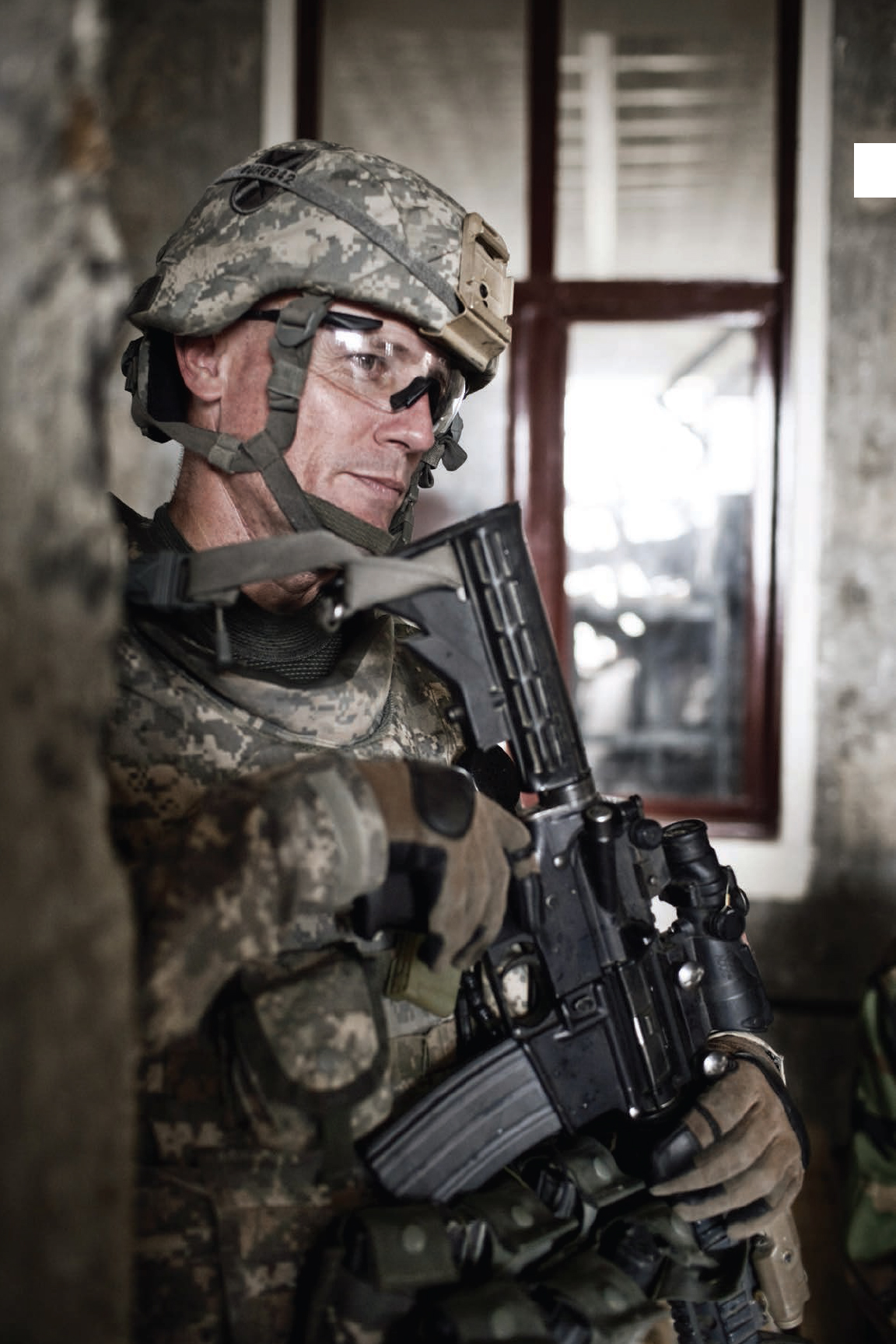
An American soldier secures a building in Afghanistan before the countrys 2009 elections.
CHAPTER 1
Using Military Force
T he decision to use military force is one of the most important choices that a country can make. Wars cause immense human suffering. Soldiers leave home to fight on distant battlefields, and some do not return alive. No matter how careful soldiers are, innocent people die in every war. Men, women, and children cannot avoid the battles that rage around them or the bombs dropped on their cities. For these reasons, the question of whether to use military force is always a controversial one. In a democracy, the people must debate these issues and find the best way forward.
Debates About Military Force
The current war on terror is a perfect example of the debates that rage over the use of military force. On September 11, 2001, the United States suffered the deadliest terror attack on its soil in history. Terrorists hijacked four passenger planes to crash into targets on the ground. Two planes struck the Twin Towers in New York City. The towers soon collapsed from the damage, killing many people trapped inside and rescuers trying to save them. Another plane struck the Pentagonthe headquarters of the military. The passengers on the fourth plane fought the hijackers after they heard about the attacks. Due to the passengers heroic actions, the plane crashed into a field rather than its intended target. In all, nearly three thousand people lost their lives.
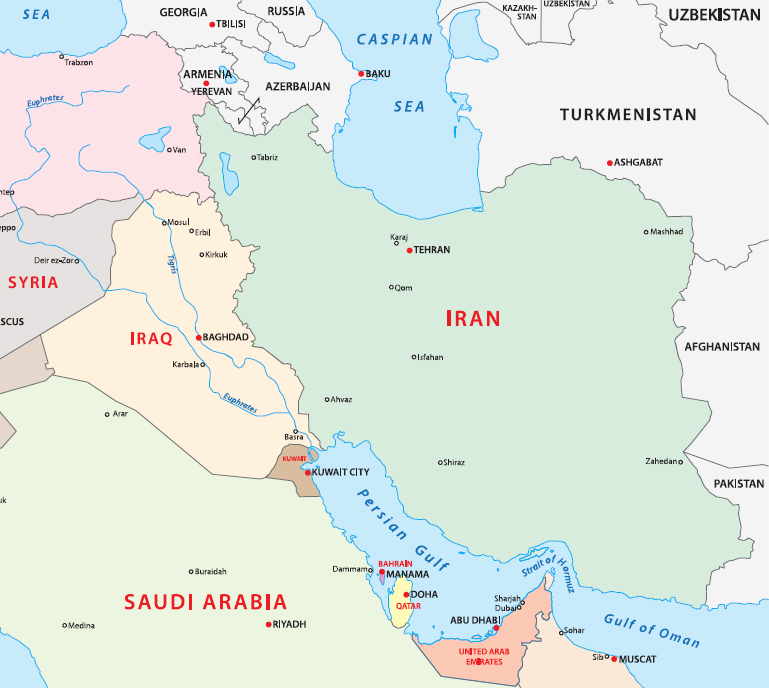
The United States invaded Iraq and Afghanistan after the 9/11 terror attacks.
The 9/11 terror attack set in motion a series of events that continue to shape the world we live in. The American government quickly determined that known terrorist Osama bin Laden was responsible for the tragedy. He was living in Afghanistan, and the Taliban, a militant group that governed most of the country at the time, knew he was in the country. The United States led an invasion of Afghanistan to overthrow the Taliban and capture or kill bin Laden. This invasion was supported by most countries. It was seen as an act of self-defense after 9/11. American allies joined the effort. The Taliban was overthrown, and a new government was set up in Afghanistan. Controversially, some terrorists were captured and tortured for information.
In 2003, the American government, led by President George W. Bush, invaded a second country, Iraq, as part of the war on terror. Bush claimed that Iraqi leader Saddam Hussein had links to Osama bin Laden as well as illegal weapons of mass destruction (weapons like deadly gases and nuclear bombs). This time, the international community did not agree with Bushs claims. As a result, most other countries did not think the invasion of Iraq was justified.
For more than eight years, American soldiers would fight and die in Iraq. As more and more American soldiers lost their lives in the conflict, public opinion in the United States turned against the war. Civilian casualtiesthe deaths of innocent people caught in crossfire or accidentally bombedbecame more widely discussed. Protests against the war also became more common, until troops finally withdrew in 2011. Meanwhile, American soldiers are stationed in Afghanistan to present day. Although they do not typically go on combat missions anymore, some still lose their lives each year in attacks.
The invasions of Iraq and Afghanistan highlight the dilemmas that democracies face when going to war. What is a good reason for going to war? Does a country need to listen to the international community when deciding to go to war? How many civilian casualties are acceptable? Do the benefits of war justify the sacrifices that men and women in uniform must make? Is torture ever acceptable?
These are questions the world and the United States are still trying to answer as the war on terror continues. Today, American combat troops operate in more than a dozen countries. In 2017, at least thirty-three American combat troops died overseas in countries stretching across Asia, the Middle East, and Africa.
In addition to combat troops, the United States uses airstrikes to target people and groups connected to terrorism. Bombs or missiles are dropped on distant targets in an airstrike. Between 2015 and 2018, American airstrikes were carried out in seven countries around the world. The president and military carry out airstrikes with little oversight. Some lawmakers and citizens argue there should be more debate about these methods of military force.
A Just War
The first question people ask before going to war is if it is the right thing to do. In other words, is there a good reason for starting a war or using military force in the first place? This is a surprisingly difficult question to answer in many cases. Often, citizens in a democracy will disagree on this point. Politicians may debate it as well. Both sides in a war usually believe they are in the right.
Font size:
Interval:
Bookmark:
Similar books «Military Force»
Look at similar books to Military Force. We have selected literature similar in name and meaning in the hope of providing readers with more options to find new, interesting, not yet read works.
Discussion, reviews of the book Military Force and just readers' own opinions. Leave your comments, write what you think about the work, its meaning or the main characters. Specify what exactly you liked and what you didn't like, and why you think so.

